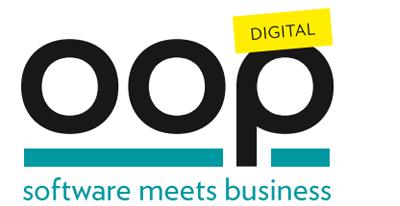Please note:
On this page you will only see the English-language presentations of the conference. You can find all conference sessions, including the German speaking ones, here.
The times given in the conference program of OOP 2023 Digital correspond to Central European Time (CET).
By clicking on "VORTRAG MERKEN" within the lecture descriptions you can arrange your own schedule. You can view your schedule at any time using the icon in the upper right corner.
Thema: Collaboration
- Dienstag
07.02. - Mittwoch
08.02. - Donnerstag
09.02.
"If you can't measure it, you can't improve it." Although it is (relatively) easy to measure objectively quantifiable decision criteria such as profit, how does one measure "soft" attributes, such as psychological safety or team dynamics, to judge an intervention's success?
This talk will present insights into the practical application of leading-edge research into what makes intelligent, high-performing teams and organisations, exploring the science behind the current buzzwords of…
"We're looking for passionate programmers!" says the job ad. Passion is used to evoke single-mindedness, drive and intensity. There is more than one kind of passion, and when raw passion is tempered with compassion and dispassion, we start to see a more balanced way of development.
Good development draws on both creativity and rationality, on both experience and experimentation, on both focus and connection, on both individual skill and group intelligence. Let's explore the many passions of…
IT is always changing ... In this talk I'll do some crystal ball gazing from two perspectives. At heart, I’m a tester. For two years I’ve also been a CEO. I’ll look at what factors are at work and what kinds of effects will they have on how we work and the roles of testers and software professionals.
Alongside musings about the future, I’ll talk about concrete activities on an individual and company level to best prepare ourselves for this nebulous future.
Target Audience: Everyone
Prerequisite…
This talk explains how Scenario Casting enables agile teams to pull together despite diverse ideas and concerns - in three iterative collaborative steps:
1. Find example scenarios of how ideas and concerns affect the domain - strictly in domain language! This provides an initial Scenario Backlog outlining the problem space.
2. Prioritize the Scenario Backlog and agree on scope.
3. Combine the top scenarios into coherent overarching Orientation Scenarios.
Let the agile teams focus on their parts…
Over 95 % of companies in the EU are small businesses with less than 250 employees. Many of them would like to reduce their carbon emissions but very few have the knowledge and time needed to take action.
Reaching a sizable fraction of these companies with actionable information about their carbon footprint has a huge potential for climate impact. But is that possible for an organization with less than 10 employees? While also working at a sustainable pace?
Target Audience: Everybody willing to…
You have emotions? Congrats, you are a (professional) human being! Now, how can you actually handle your emotions smartly in our still tech- & tool-focused IT world?
In professional situations like:
- dealing with human "legacy experiences"
- integrating "personal silos"
- interacting with ease with other human beings
- tackling stressful situations (e.g. conflicts) within a team
This session offers a set of science-based, pragmatic tools that are (almost) always accessible - like a Swiss…

